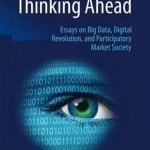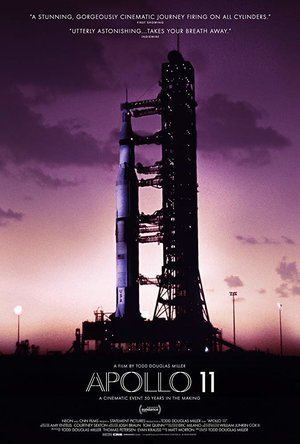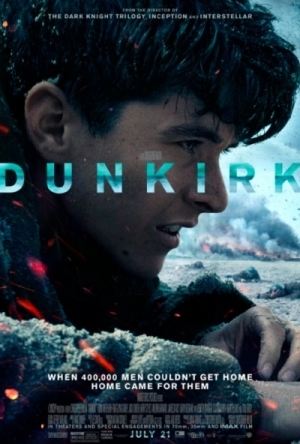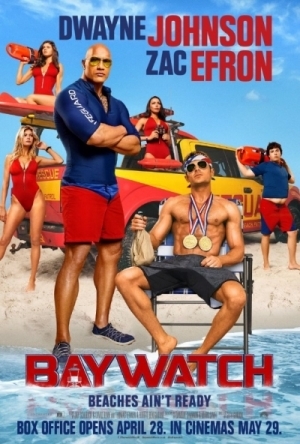
ALock: Secure clouding message
Social Networking and Utilities
App
ALock : The safest personal hide photographs and encrypted messages. You can make your message...

Thinking Ahead - Essays on Big Data, Digital Revolution, and Participatory Market Society
Book
The rapidly progressing digital revolution is now touching the foundations of the governance of...
Bob Mann (459 KP) rated The New Mutants (2020) in Movies
Sep 9, 2020
The plot: So, my review title suggests that the plot is very closely aligned to M Night Shymalan's "Glass" - his "Split" sequel from last year. A Victorian-style hospital-cum-prison similarly forms the claustrophobic setting for the majority of the movie. This is where the troubled teen Dani Moonstar (Blu Hunt) is taken after being suddenly orphaned in dramatic and mysterious circumstances. The only doctor present, Dr Reyes (Alice Braga), says she is being held there for her own - and society's safety - while her puberty-driven mutant tendencies emerge.
Locked away with her is Rahne (Maisie Williams), Charlie (Sam Guthrie), 'hot' Brazilian hunk Roberto (Henry Zaga) and the gloriously named Illyana Rasputin (Anya-Taylor Joy). Danni's arrival sparks a serious of escalating events that literally lead to all hell breaking loose.
Blu is the warmest colour: What made this Marvel movie stand-out for me, from the normal glass-shattering standard, is that it is predominantly a character-led piece. We spend quite a bit of time (for a Marvel movie) in building relationships between the teens, including a sweet lesbian-coming-out 'will they/won't they' tension between Rahne and Danni.
I was also very much attracted to the performance of Blu Hunt. I admit that this might not just be due to her interesting performance (the indigenous / LBGT angle is intriguing) but because she reminded me strongly of a girl at school who I had a mad crush on and completely failed to get off with! Blu is actually native American (from the Lakota tribe). Given she is the lead and has to carry the movie, it's a surprise that she is only about 5th in the billing: I'd have been upset with the director (Josh "A Fault in our Stars" Boone) about that.
Maisie Williams is also effective in this, and gets top billing, although arguably Anya-Taylor-Joy has emerged - with her wonderful "Emma" - as the bigger star since filming.
But it's Taylor-Joy's Rasputin that really stands out as the most interesting of the characters on show. There's a scene where she goes into action - eyes blazing and 'daemon' hovering - that would make a splendid PC screensaver! Stuff the "Black Widow" standalone movie: I'd go watch Illyana Rasputin kicking ass in her own follow-up movie! (Of course, Anya Taylor-Joy was also prominent in "Glass", which unfortunately cements the similarities between the films.)
The movie has had a long and tortuous path to its final release, being made waaaaaayyyyy back in 2017. As an X-Men movie, it's appeared after the X-Men universe finally imploded (with the disappointing whimper of "Dark Phoenix"). So in that sense it's a bit of a ghost of a flick.
Overall, it's a mixed bag. There's a sense of great familiarity with the contents - particularly with the strong echoes of "Glass", actually filmed after this one (but with 'inversion', who knows anymore?). Even the "Indian legend" that runs through the movie swaps a bear for a wolf but ends with a familiar, rather groan-inducing, motto. (It was used in "Tomorrowland" I think?)
But the young cast are attractive and entertained me for the (pleasantly short) running time. It's not going to win any prizes for originality, or indeed anything else. But it really wasn't the X-Men bust I expected it to be.
(For the full graphical review, please check out One Mann's Movies here - https://bob-the-movie-man.com/2020/09/08/x-men-the-new-mutants-2020-glass-half-full/ . Thanks.)
Kirk Bage (1775 KP) rated Apollo 11 (2019) in Movies
Jan 22, 2021
Director Todd Douglas Miller makes the bold choice to do away with all narrative, cutaway interviews and commentaries, and just shows you what happened in gorgeous detail, with a kind of retro super 8 camera vibe, and a very evocative sountrack. The degree of unseen footage of the entire project is jaw-dropping, especially if there is something of a science or even science fiction geek within you.
Some of what you see and hear is, of course, so iconic that when you see or hear them you feel a sense of deja vu that feels like a dream in the context of the full story. The rest is so amazing to contemplate as something that humanity actually achieved that it is tempting to see it as an odd retro sci-fi movie with quite bad effects and a dull plot; the control room, suits, the rocket itself, the sense of endless patience, anticipation and waiting – you just wouldn’t believe it would work if it was a fiction.
At several points I found myself reminding myself that it wasn’t a fiction, and then marvelling at the entire world that existed at the end of the 60s, and how so essentially different it was, and how ancient it feels now. I wasn’t quite born when all this happened, but it has been very much in my imagination all my life. I wanted to be an astronaut, as did most other kids in the Star Wars era of the late 70s and early 80s, and I only really gave up when I realised that meant being as smart and dedicated as Neil Armstrong and not as reckless and cool as Han Solo. Now I am older, I can appreciate things about it that I never could, and in understanding Human history, it is a riveting chapter.
What we see in this film is how detail and hard work and maths and safety precautions and thousands of team members made this happen. Every nut and bolt, and every drop of sweat and fuel is counted, recounted and considered. At times it seems mundane and without drama, boring even, and then the sheer scale of acheivement and wonder overtakes you as you catch yourself realising how incredible it was that any of this was done at all.
There is no political overtone or background here, no conspiracy theory, no other voice questioning the economic impact or wisdom of the entire endeavour, just a childlike but serious minded wonder at doing something because we could if we set our minds to it. And for that it has a beauty and transcendent elegance that rarely accompanies the subject. By the end, there is really only one word to describe the fact that over 50 years ago three men looked down on the Earthrise and beheld every other living thing in existence in one glance. And that word is: wow!
It is slow, for sure, but only because we have become used to pace and forced drama, from our fictions and our documentaries. Apollo 11 won’t be for everyone in that case, and may even be fairly called dull by some who can’t relate to it in any way. For me it was a trance like epiphany I can’t forget. Highly recommended if you are looking for something fascinating, educational and thought provoking out of your comfort zone and out of this world!
Gareth von Kallenbach (980 KP) rated Dunkirk (2017) in Movies
Jul 11, 2019
When we discuss, reflect, or are taught about World War II, we often think the turning points of the war as the Battle of the Bulge, Leningrad, Midway, or D-Day. In doing this, we overlook moments like Dunkirk. Christopher Nolan exposes how vital this moment was in determining the fate, not only of the war, but the world in Dunkirk.
It is hard to describe what the film is like just from the visuals. It captures you and surrounds you by making the audience feel as though they are witnessing these events from a third-person perspective, as well as, through the eyes of those involved. The film itself is not limited to just the war or a discussion of the circumstances that led up to the war itself. There are no major battles shown, however, the film demonstrates quite vividly the horrors of war, the confusion, the chaos, the brutality, and the fear that each moment might be your last.
Dunkirk, masterfully tells the story of those involved in the evacuation of those troops that found themselves being pursued by Nazi Germany. Each frame will have audiences fearing for the safety of the men on the screen and hoping that they will somehow make it home despite all indications that their fate is sealed. Nolan gives audiences the opportunity to see the events in a multilayered way so that we can understand all of the moving parts involved in this massive undertaking. It renews the appreciation that many of us have for those who fought in World War II and offers a new sense of appreciation for younger generations who are far removed from those events. Most impressive about the film is its ability to be more historically accurate in displaying the different people who actually were fighting. It is not, like Saving Private Ryan, a film that exaggerates American participation in the war to make it look as though the only people fighting were Americans and Nazis. Dunkirk shows how the French, British, and Belgians, of various colors and backgrounds were fighting well before summer of 1944.
The film also pulls of quite an ambitious task by removing the Nazis from the film. This is not to say that there is no German presence in the film, rather, they minimize the focus on the Nazis in order to keep the focus on those evacuating and those involved in assisting with the efforts. In my viewing, I felt that this strengthened the film in adding to the fear by having a faceless enemy, one that could be lurking around the corner or coming around the corner at any moment. This added to the tension to make audiences feel the fear that so many of these young men must have had as they waited to board their ships to get home.
Dunkirk is impressive, emotional, and full of tension. It raises the bar with respect to how historically-based films should be in the representation of events. It does not rely on one linear story to capture the audience. It is an intelligent and overdue homage to the men and women who did all they could to ensure that these men made it home.
Gareth von Kallenbach (980 KP) rated Baywatch (2017) in Movies
Jul 11, 2019
If there was a film that took to the phase “don’t take yourself too seriously” Baywatch would be that film. This Seth Gordon (Horrible Bosses, Identity Thief) directed film embraces the cheesiness of the original Baywatch television series in a big way. The cast pokes fun at every aspect of the television series as well as the personas of the real life actors, specifically Johnson and Efron. Johnson’s character is constantly poking fun at Efron’s character by calling him boy band names, in reference to Efron’s status as a teen heartthrob. Another way the movie makes fun of itself is by calling out the fact the Baywatch team not only have the duties of lifeguards on the beach but also doing criminal investigates, going under cover and chasing criminals. There is an ongoing gag throughout the movie where a local police officer, Sgt. Ellerbee (yahya Abdul-Mateen II), reminds Mitch that he is not a police officer, which does not stop him from survelling suspects and looking at coroner reports. Another aspect that I think was done well was that it does not try to reimagine the universe of Baywatch. Rather it takes all the corny one liners and over the top plots and adds some raunchiness to make it new and fresh.
It maybe went a little too far on the cheesy lines and over-acting at times but I think that was the intent of the film. Many of times I found myself shaking my head at how absurd the story was but in the end it was all done in a fun way and again not taking itself too seriously. The action scenes are good not great. The acting fits the style of the movie, it’s bad but presumably on purpose. The CGI in the movie is hit and miss, most notable the underwater scenes are not the best. The movie is also way raunchier that I expected. Some scenes definitely caught me off guard at how far they went. I wouldn’t go into it expecting any amazing acting or plausible plot lines, because you are likely to be let down. This is not for anyone looking for a witty comedy or is not a fan of excessive foul language and some nudity. If you were a fan of the TV series you will probably enjoy the film, notably the cameos by Pamela Anderson (as Casey Jean Parker) and David Hasselhoff (as the mentor).

The Weather Channel: Forecast
Weather and Lifestyle
App
The Weather Channel App for iPhone is your best option for accurate forecasts and timely local...

eWeather HD - Weather, Alerts and Satellite Radar
Weather and Utilities
App
The World's only iPhone, Apple Watch and iPad weather app specifically designed to provide all the...

Notability
Productivity and Education
App
Welcome to Notability: powerful, yet wonderfully simple note-taking and PDF annotation. Apple...

Tides PRO - High and Low Tide Times Tables & Tidal Charts
Weather and Navigation
App
Tides PRO is a beautiful tide prediction app for iPhone, iPad and Apple Watch that helps you know...



